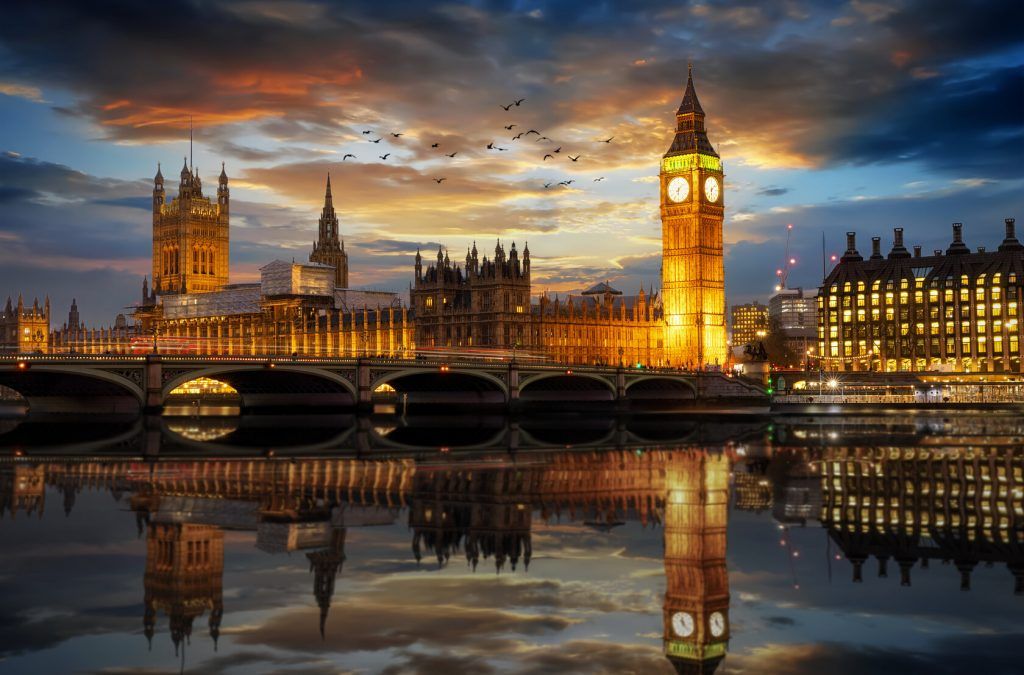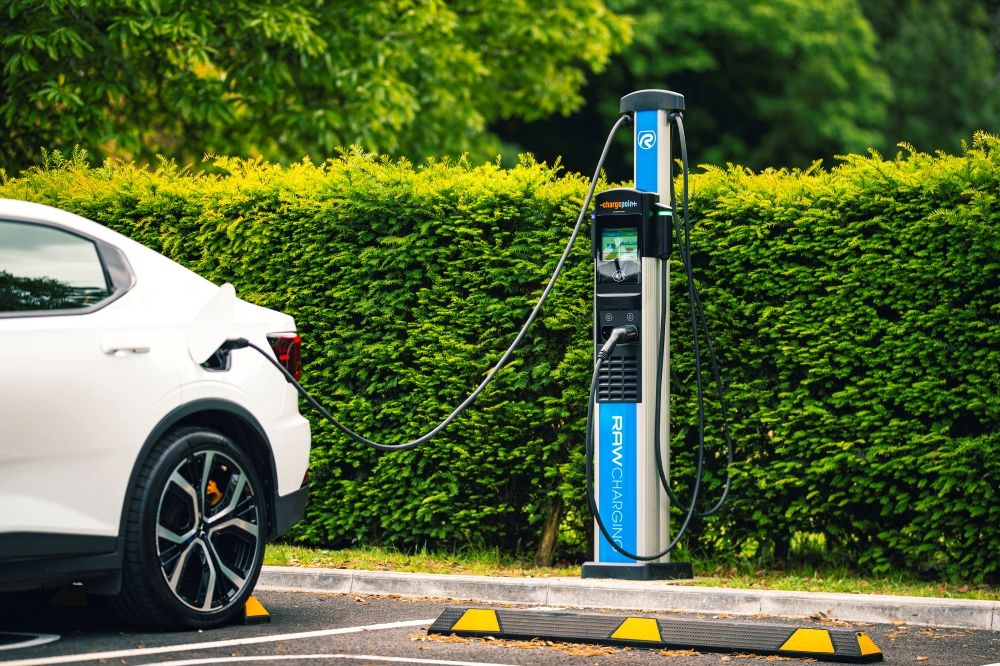With the much-delayed release of the UK Government’s Transport Decarbonisation Plan, there has been mixed reactions from the wider industry, with some welcoming it as a bold step forward, but others deriding it for its limited reach and urgency, in terms of both technological measures, and also ways it might effect behavioural change.
Reacting to the UK government publishing its Transport Decarbonisation Plan, energy policy expert, Professor Noam Bergman from the University of Sussex Business School, said: “While it is good to see the government fleshing out more of its low-carbon transport strategy, there are still limitations to its approach.
“Transport Secretary, Grant Shapps, told Parliament: ‘it’s not about stopping people doing things, it’s about doing the same things differently. We will still fly on holiday, but in more efficient aircraft, using sustainable fuel. We will still drive, but increasingly in zero emission cars’.”
“Therein lies the rub. The underlying assumption here is that technology is the solution, and all we have to do is buy a ‘clean’ car or a ticket on a ‘clean’ plane, but not change our practices or behaviour… this approach risks undermining efforts for a deeper transformation of transport… ambitious action with communities having a say on greening their transport options should start now.”
However, some viewed the Transport Decarbonisation Plan as a welcome step forward.
James Lancaster, Chair of the Urban Mobility Partnership said: “We welcome the government’s ambitious plans outlined in the Transport Decarbonisation Plan and welcome the strong commitments to encourage modal shifts away from single occupancy private cars.
“We particularly welcome the recognition that all modes have a role to play in our future transport systems and in order to decarbonise the transport sector different modes must work together to develop solutions.
“We are delighted the government has also recognised the role of shared car use in reaching our net zero goals, car clubs and daily rental will be a vital part of supporting public transport, active travel and micromobility solutions as we move into a new era.
“The release of today’s strategy presents the opportunity to have a transformative impact on the way we move around and the government’s focus on multi-modal solutions and we commend the government in taking an approach that is open to all technologies and modes.
“The government’s commitment to supporting transport providers in the development of communications campaigns is particularly vital at this time in the wake of the Covid-19 pandemic and it is vital that we work to maintain the growth of active travel, but also see campaigns which encourage the uptake of public and shared transport solutions, at a time when consumers will inevitably be hesitant.”
Randolph Brazier, Director of Innovation at the Energy Networks Association, which represents the UK and Ireland’s gas and electricity network operators, said: “As part of the Green Recovery the electricity networks are accelerating £300m of expenditure in the next few years to speed up the roll out of projects like electric vehicle charging points.
“There’s also a much bigger role to play for hydrogen in enabling cleaner heavy transportation on our roads, rail, seas and skies in the future. Investment is what’s needed – but we can’t wait to make that investment ‘just in time’, we need to be making bold decisions and start laying the groundwork now.”
Kevin Bell, transport and infrastructure partner at law firm, Womble Bond Dickinson, said: “There seems to be a great deal of enthusiasm and optimism around new technologies to allow for emission-free travel in the not so distant future.
“The Transport Decarbonisation Plan should also be seen as good news for airports who will be pivotal in the journey towards net zero and will undoubtedly continue to be important economic wealth generators if sustainable methods of air travel can be developed quickly.
“There is no mention of stopping airport expansions or capping growth in passenger numbers.”
“The proposed phasing out of the sale of new diesel and petrol heavy goods vehicles is now expected for 2040, and this delay may underline the challenges electric vehicles currently present in terms of range and distance. Perhaps this points to hydrogen as a more realistic option for the future?
“Nevertheless, this news, alongside the phasing out of polluting cars and vans by 2030, highlights the very rapid change now underway for the decarbonisation of road vehicles and stresses the importance of bringing battery manufacturing to the UK.
“There seems to be much reliance on the development of new technology and whilst new ‘green’ innovation will no doubt continue to materialise over the coming years, the government still needs to focus on how the UK’s power grid infrastructure will deliver the extra power required to deliver these ambitious plans without reliance on fossil fuels. Otherwise, we run the risk of stalling when we should instead be putting our foot on the accelerator.”
Ryan Hood, Chair of the UK’s Intelligent Transport Society (ITS), said he believes that opportunities exist right now to make better use of transport technology, particularly as the transition to green modes will take time: “We have shown through the pandemic, how our towns, cities and transport systems can be rapidly adapted to prioritise walking and cycling. We can do the same again to support decarbonisation, and ITS can enable us to achieve it faster.
“For many years, our members have been actively working to reduce the environmental impact of transport through the implementation of innovative technological solutions… that can make a difference to our air quality and emissions right now with minimal infrastructure changes, and I hope that funding is available to implement these and other solutions.”
Tim Wood, interim Chief Executive at Transport for the North, said: “Addressing the climate emergency through the decarbonisation of our transport network is an urgent priority, and this national plan is to be welcomed.
“The key will be to translate its aims into action as swiftly as possible.
“As our Decarbonisation Strategy for the North of England is finalised later this year, we’re confident that our region will set the pace for climate action and hit our target of near-zero carbon emissions from surface transport by 2045 – ahead of national policy.
“The North is at the cutting edge of green innovation and is perfectly positioned to lead the way on many of the opportunities and initiatives – such as the rollout of electric vehicle charging networks and adoption of hydrogen as a clean fuel. Investment in our region will support the critical Green Economic Revolution and aid the wider levelling-up agenda.
“Publishing the Integrated Rail Plan must now be a priority in order to understand when HS2, Northern Powerhouse Rail and other major projects such as the Transpennine Route Upgrade and rail electrification will be delivered.”
Gill Nowell, a Director at EVA England, commented: “As UK Government today launches its Transport Decarbonisation Plan, EVA England welcomes the Green Paper on the CO2 Regulatory Framework for cars and vans, which includes consultation on a Zero Emission Vehicles mandate. Such a mandate would require automotive manufacturers to increase the proportion of battery electric vehicles they sell.
“This would promote the uptake of battery electric cars and push more onto the secondhand market, making electric cars more affordable to more people.EVA England will encourage its members and electric cars drivers across England to share their views with Government on this important topic.
“Zero emission driving is essential to maximising emissions reductions from the transportation sector. The proposed 2040 ban on the sales of new diesel and petrol HGVs is a good step that sends a clear indication of the UK’s decarbonisation plans ahead of COP26 in Glasgow this autumn.”
Image: Shutterstock












